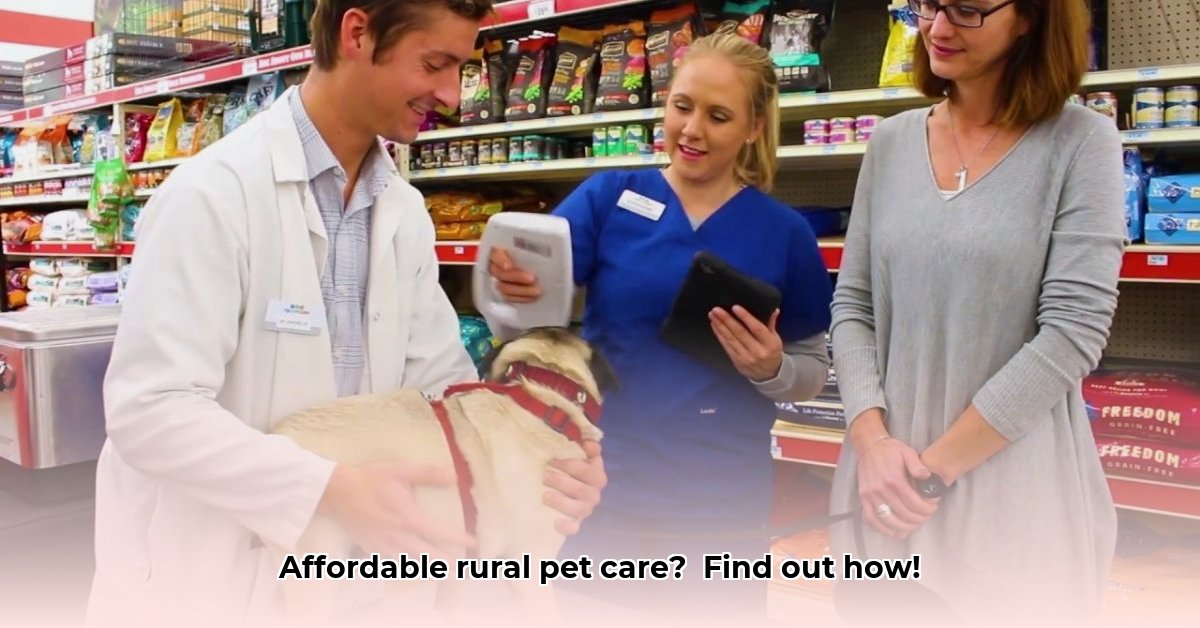
Tractor Supply Company's (TSC) PetVet clinics are transforming veterinary care access in rural America. Offering walk-in appointments and affordable preventative services for dogs, cats, and kittens, PetVet addresses a critical need, but its innovative model also raises important questions regarding sustainability and quality of care. For those looking for pet supplies to support their animal's health, check out Tractor Supply's pet products. This article examines PetVet's operational model, its impact on rural communities, associated challenges, and strategies for long-term success.
How PetVet Clinics Operate
PetVet clinics prioritize accessibility and affordability. Unlike traditional veterinary practices, they operate on a walk-in basis, eliminating appointment scheduling and often reducing costs. Their services primarily focus on preventative care: vaccinations, wellness exams, and basic parasite treatments. This streamlined approach aims to provide essential pet care efficiently and at a lower price point than traditional clinics. However, this focus on preventative care means that PetVet clinics do not offer emergency services or complex surgical procedures. Clients needing specialized care would require referral to a different veterinary facility.
Impact on Rural Communities: Accessibility and Affordability
For rural communities, often underserved in terms of veterinary services, PetVet clinics represent a significant improvement in access to affordable care. Long travel distances and high costs often deter pet owners from seeking routine veterinary care. PetVet's convenient location within Tractor Supply stores removes many of these barriers. This increased accessibility directly benefits pet health and indirectly supports sustainable agriculture by improving the health of working and companion animals on farms. While the precise economic impact is still being studied, the increased access to care is expected to lead to improved health outcomes and better animal welfare overall.
Challenges and Concerns: Sustainability and Quality
Despite the evident benefits, several challenges threaten the long-term sustainability of the PetVet model. The primary concern centers on the balance between affordability and quality of care. Maintaining a low-cost structure while ensuring the provision of thorough veterinary services is a delicate balancing act. Staffing shortages in rural areas could also impact the ability of clinics to maintain adequate service levels. Additionally, the absence of emergency services poses a potential risk to animal health, highlighting the need for clear communication with clients about service limitations and referral pathways. Further investigation into the potential displacement of established veterinary practices is also necessary. A potential increase in veterinarian workloads at PetVet clinics also warrants further research.
Sustainability and Scalability: Long-Term Viability
The long-term success of PetVet hinges on several key factors. Recruiting and retaining qualified veterinarians in rural areas is crucial. Competitive compensation and benefits are necessary to attract and retain talent and ensure consistent service delivery. Smart geographical expansion is also vital, focusing on areas with significant unmet needs for veterinary services while avoiding oversaturation. Effective resource allocation and efficient clinic operations are necessary to ensure financial sustainability while maintaining a high standard of care. Environmental responsibility, particularly waste management, must also be integrated into the model as the number of clinics expands.
Stakeholder Perspectives: A Multifaceted Approach
TSC's primary objective is profitability and expansion. Veterinarians must balance their professional ethical standards with the demands of a high-volume, low-cost model. Rural communities benefit from increased access to affordable care, while animal welfare organizations remain vigilant in monitoring service quality and animal well-being. Open communication and collaboration between these stakeholders are critical for addressing concerns and ensuring PetVet's long-term success. A transparent dialogue regarding pricing, service limitations, and animal welfare is vital for managing expectations and building trust.
Conclusion: A Promising Start, but Ongoing Monitoring Is Key
Tractor Supply's PetVet clinics offer a promising approach to addressing the veterinary care deficit in rural areas. Increased accessibility and affordability clearly benefit pet owners and contribute to broader community well-being. However, the model's long-term viability requires diligent attention to issues of sustainability, quality of care, and stakeholder collaboration. Further research and ongoing monitoring are essential for evaluating the long-term impact on rural communities, the veterinary profession, and animal welfare, ensuring the positive potential of this innovative approach is fully realized.